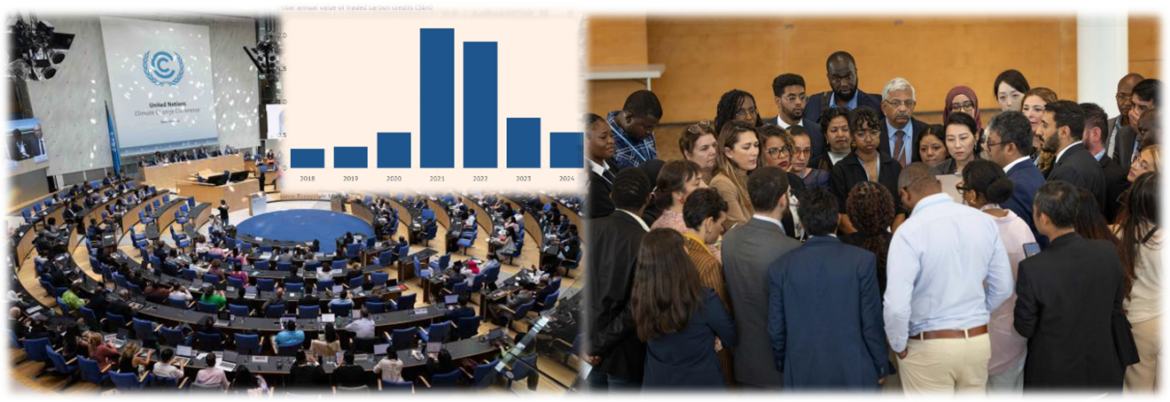In a sign of escalating disagreements between countries in achieving climate goals due to geopolitical and economic challenges, the outcomes of the Bonn Climate Meetings (16–26 June) were disappointing and concerning, especially regarding carbon markets (Article 6). This is confirmed by:
- Continued doubts about the integrity standards of carbon market review processes (bilateral deals under Article 6.2) and their lack of transparency (Financial Times, 27 June).
- Disagreement among countries regarding the future of the financial surplus of the Clean Development Mechanism (more than USD 45 million), whether to transfer it to the Adaptation Fund as requested by developing countries (only 7% allocated), or to use it to support the implementation of Article 6.4 mechanism and capacity building according to developed countries’ direction, or a combination of both (Carbon Market Watch, 26 June).
- Postponement of discussions on how to manage the Adaptation Fund, the quality of carbon credits, reliable accountability mechanisms, and details related to responsibilities for handling reversals (such as forest fires) to COP30.
- Lack of consensus on the use of carbon credits for offsetting claims and reducing direct emissions as stated in nationally determined contributions (NDCs), which shifts mitigation burdens onto developing countries (Carbon Pulse, 26 June).
In light of geopolitical and economic challenges, and with ongoing disagreements and the difficulty of achieving tangible progress, the COP30 presidency is expected to focus its efforts on reaching a consensus-based formula to activate carbon markets.


